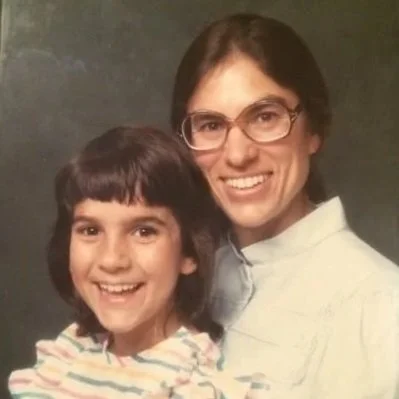Origin Story
When I was young, growing up in North Carolina and Virginia, I begged my mom to find me a Spanish class. I wanted to learn as many languages as I could. I was frustrated that you couldn’t take foreign languages until 7th grade, and that you could only choose one. I was jealous of kids growing up in multilingual households. In my senior year of high school, I petitioned to take a second language, German, instead of taking a science. I had a vision of running my own international school, where students would come together to learn each other’s languages.
I majored in Spanish at Bryn Mawr, and lived abroad in Madrid for a year. When I graduated I got a job at the Boston Language Institute, and then Berlitz, in Boston, trying to figure out how to turn my passion for languages into a career. I knew I needed to learn more. I went to the University of Texas at Austin to pursue a Master’s degree in Foreign Language Education and Applied Linguistics. I thought I wanted to be a Spanish teacher, but I could study English at the same time. I happened to get a job as a Teaching Assistant (TA) for a class at the Center for Teaching and Learning that international graduate students had to take to build their English language, teaching, and communication skills to work as TAs at UT. I was hooked! I had never considered what it meant to be an international student learning to study and teach here. We didn’t have TAs at Bryn Mawr, so that was all new for me as well. How could Chinese students coming here to study advanced math, for example, be expected to teach Algebra to new students at UT?
That experience changed my life. I became deeply curious about graduate education and how the different disciplines work. I realized how fascinating our classrooms really are: how do we teach, how do students learn, and what do we expect? And I realized that helping international students improve their communication skills and explore strategies to be successful here was something I really loved doing. After graduating, I became a lecturer in the Program for Excellence in Teaching at the University of Missouri–Columbia, and two years later, I accepted a position at Cornell in the international TA program. My parents went to graduate school there and I grew up hearing about what a wonderful place it was, and I was excited to get back East.
As I continued to grow professionally, I knew that if I wanted to lead programs or move into more senior roles, I should pursue a PhD. I was fortunate to be admitted to the Education PhD program at Cornell, where I could continue working part-time while pursuing my degree. One of the things that fascinated me most in my work teaching international TAs was how much students’ attitudes toward our program—and their success in it—depended on the support they received from their departments and advisors. I was surprised to find that not everyone saw value in communication skills; some faculty viewed the course as a distraction from research, and some students were reluctant to step away from their labs, even just for a 75-minute class. I became increasingly interested in how institutional structures shape students’ choices, and how teaching and communication skills are seen as separate from research. My dissertation came out of my experience considering the role of English language proficiency in graduate student success and strategies for navigating graduate school overall, as did my lifelong commitment to advocating for the importance of teaching, the value of communication skills, and how they are integral to research and the academic work of the university.
I’ll share key findings from my dissertation in another post, as well as the rest of the story of how I went from being a language teacher to a teacher, adviser, and advocate for all teachers and scholars.
How did you get on your current career path? Do you want a partner in exploring next steps? Please reach out!
